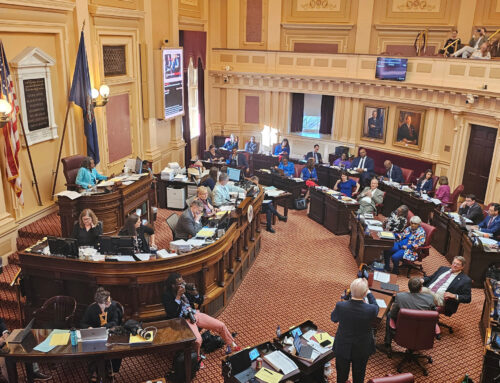Meta’s beef with the press flares at its antitrust trial
May 13, 2025
Long-simmering tension between Silicon Valley and the press that covers it is surfacing during the Federal Trade Commission’s antitrust trial against Meta.
During a heated cross-examination of the FTC’s key economic expert, Scott Hemphill, Meta’s lead attorney, Mark Hansen, noted that Hemphill joined Facebook co-founder Chris Hughes and former Biden official Tim Wu in pitching regulators on an antitrust probe of the company back in 2019. The pitch deck for the probe that was shown in court included “public recognition” of the company’s aggressive acquisition strategy from two reporters: Kara Swisher, who currently hosts two podcasts for The Verge’s parent company, Vox Media, and Om Malik, the founder of the early tech blog GigaOm who is now a venture capitalist.
In an attempt to undercut Hemphill’s credibility, Hansen caught Swisher and Malik in the crossfire. He called Malik a “failed blogger” with an axe to grind against Meta. He then suggested that Swisher, whom he referred to as a Vanity Fair columnist (she last wrote for the site in 2015), was similarly biased against the company. In court, he projected a headline about her recently calling Mark Zuckerberg a “small little creature with a shriveled soul.”
The 2019 pitch deck shown at court by Hansen also cited a Post story to support that Facebook should be investigated as a monopoly. Meta’s Hansen asked if Hemphill agreed that “The New York Post is a scandal sheet,” to which he replied that he didn’t “have a view one way or another.” Hansen showed the infamous Post front page headline, “Headless Body in Topless Bar,” to make his point.
The exchange resurfaced years-old tensions between the press and tech titans. After experiencing relatively positive coverage during the early, aspirational days of Silicon Valley, Facebook and a handful of startups grew to become the largest platforms in the world. Along the way, they’ve chafed at increasingly critical coverage of their businesses.
Malik and Swisher have indeed both criticized Meta and its executives. In 2016, Malik critiqued Facebook’s intentions for offering free access to its apps and others in India, after board member Marc Andreesseen blamed local resistance to the program on “anti-colonialism” in a later-deleted tweet. “I am suspicious of any for-profit company arguing its good intentions and its free gifts,” Malik wrote at the time.
Swisher is famous for taking tech CEOs like Zuckerberg to task in public interviews. Zuckerberg defended platforming Holocaust deniers to her in 2018, and she has called him “the most damaging man in tech.”
Tuesday’s exchange was not the first time that Meta has pointed a finger at the media while at trial. When discussing major scandals like Cambridge Analytica from the witness stand, company leaders have chalked up downswings in user sentiment to negative media attention and testified that Meta’s services haven’t seen comparable declines in engagement.
The FTC has argued that this fact is a sign of monopoly power because people can’t leave Facebook and Instagram without viable alternatives. A judge will ultimately decide if that is true or not. In the meantime, Meta’s grudges with the press are on full display.
Search
RECENT PRESS RELEASES
Related Post





